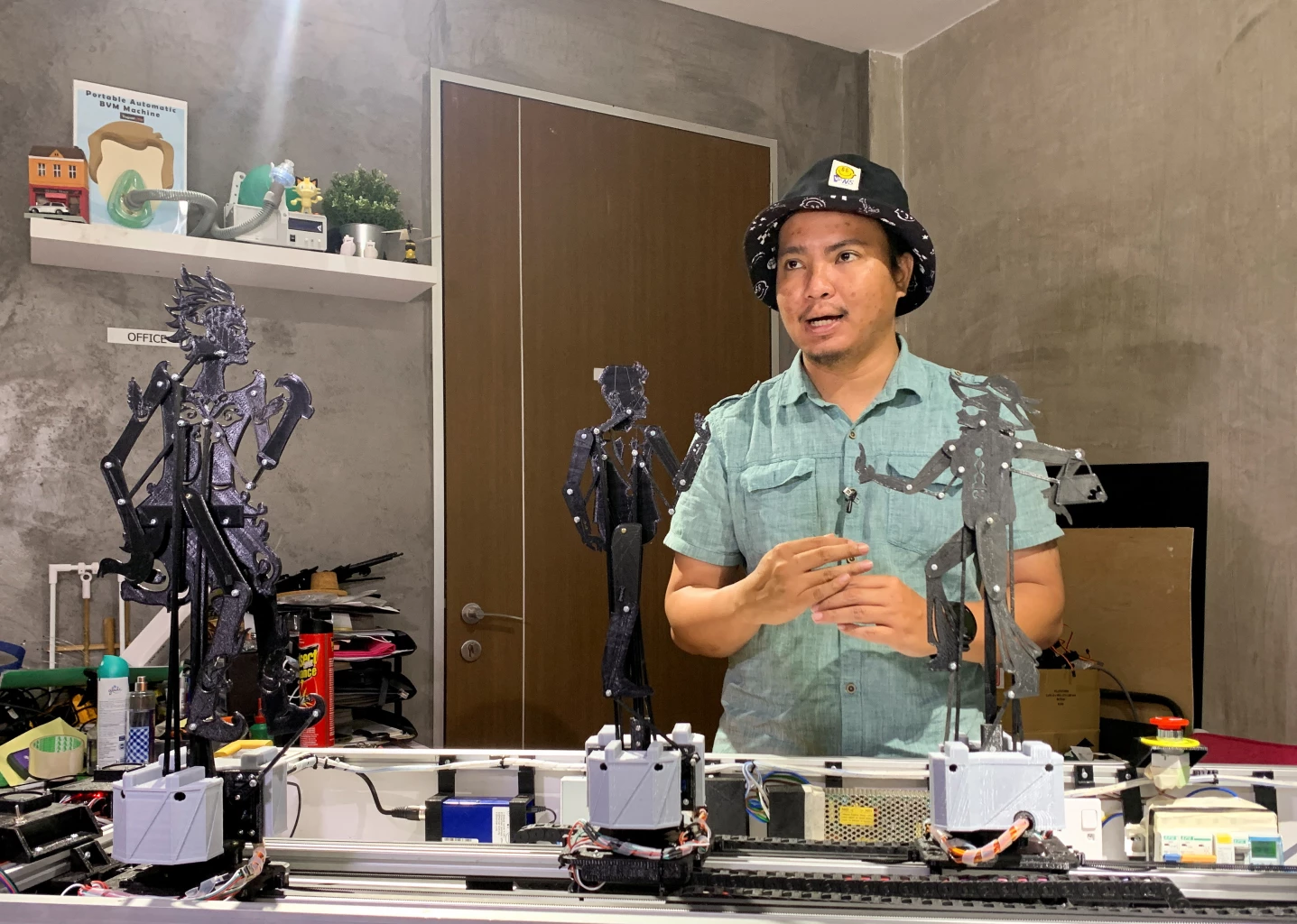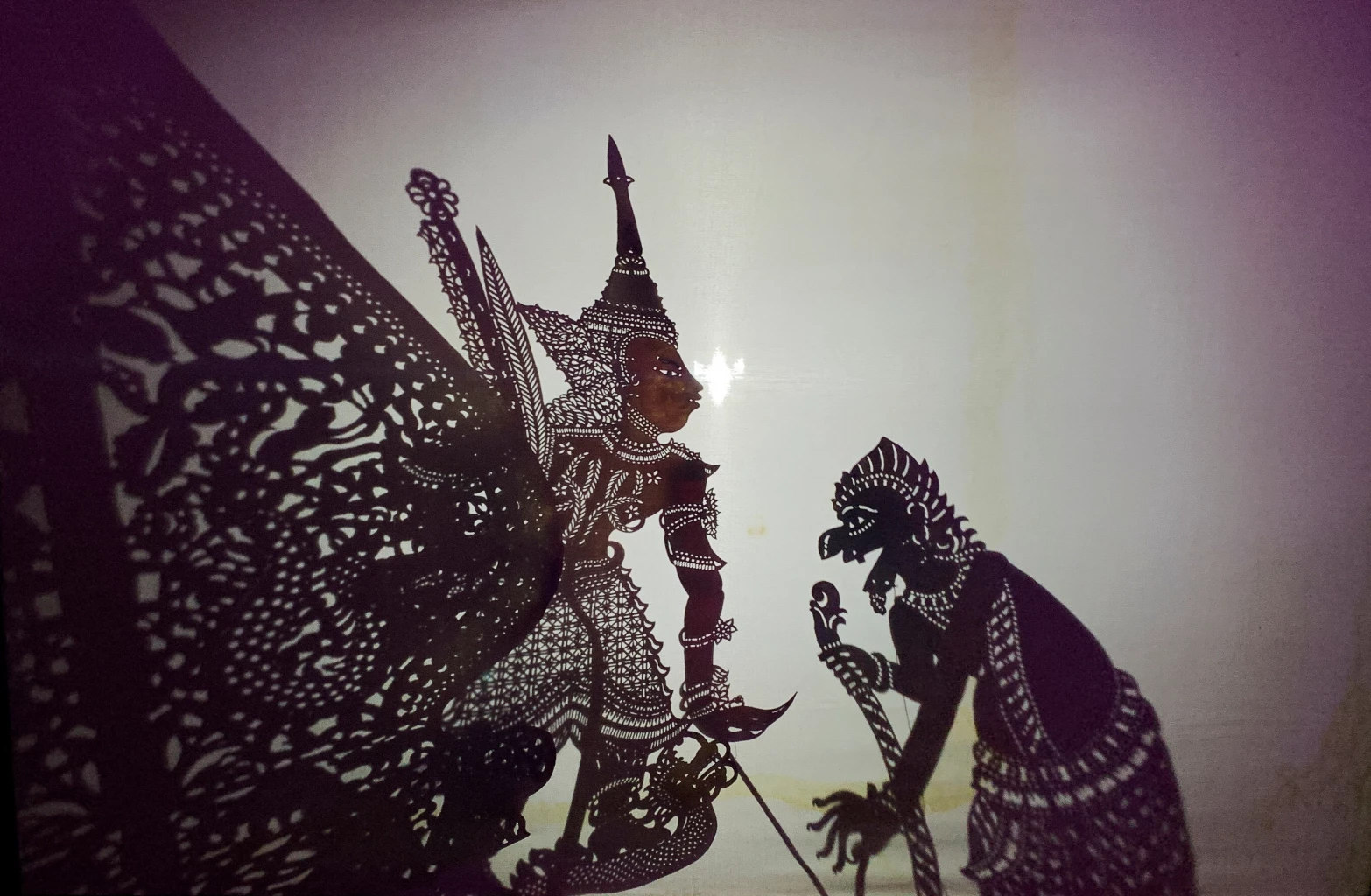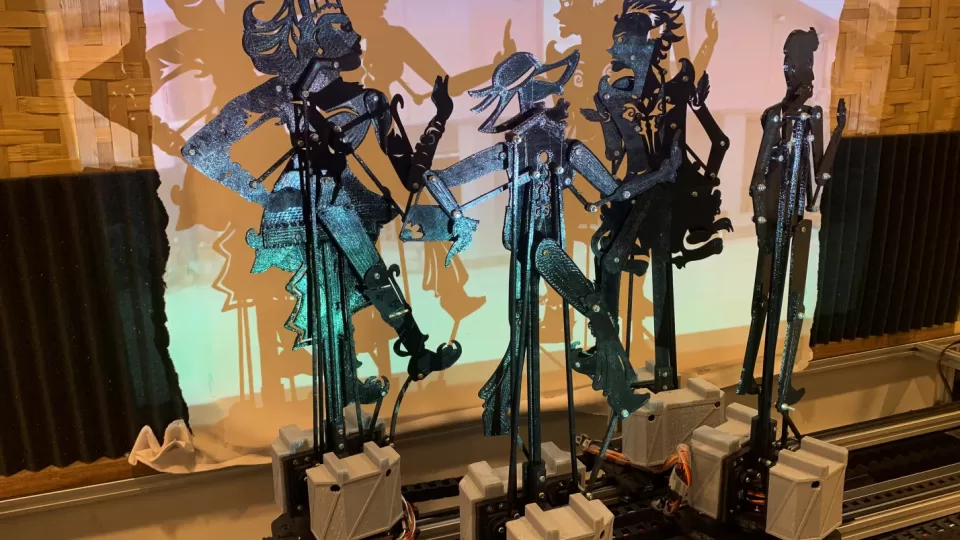October 28, 2022
BANGKOK – It is the performance of “wayang kulit”, or shadow puppetry, a theatrical art form once popular across Southeast Asia, particularly Malaysia and Indonesia.
Unlike traditional shadow puppetry, which includes meticulous efforts to craft puppet figurines out of buffalo skin and lengthy rehearsals among dozens of artists, this modern animatronic show uses 3D-printed characters controlled by robotics with their movements choreographed and programmed by one person — its young creator, Ahnaf Hakimi Ahmad.
The love for shadow puppets’ ability to tell stories of ordinary people through dialogue, music and visuals prompted the 33-year-old to start the project in July 2021 to “save” the heritage with a government grant of Malaysian ringgit 20,000 (160,000 baht).
In the face of fading heritage due to film, television and social media, the multimedia lecturer said he hoped robotic technology can help shadow puppets to be seen more often “whenever and wherever”.
Efforts to preserve the art form have been hampered in recent years not just by a lack of public interest, but also by criticism in the Muslim-majority country that the stories and characters surrounding shadow puppet performances, often based on Hindu gods and epics like the Ramayana, were “un-Islamic”.
The number of active shadow puppet troupes in Malaysia have dwindled to around eight, following a ban on shadow puppetry in the 1990s in its home state of Kelantan.


The animatronic puppet show has drawn some criticism from the traditionalists, said Ahnaf Hakimi. But he aims to keep it as original as possible by using music from traditional performances and designing the characters based on traditional puppets.
Back in the Penang mall, shoppers were impressed by the puppets with a modern twist, that tell contemporary stories that resonate with modern viewers.
Mohd Jufry Yusoff, a puppet master with over 40 years of experience who advised on the robotic show, was optimistic that with new technology the culture of shadow puppetry can grow.
Moving forward, Ahnaf Hakimi said he would like to tell more stories of ordinary people while making the show mobile for more people to access.
Reuters


